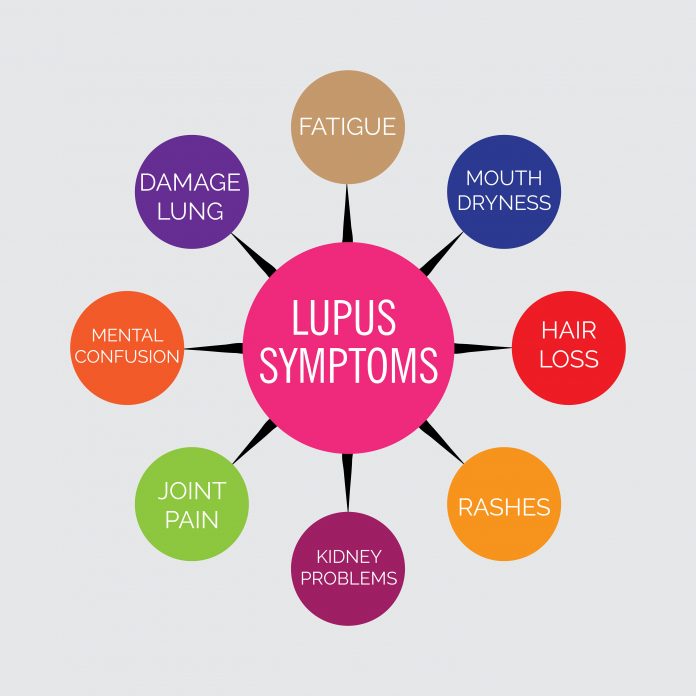Like other chronic diseases, Lupus can start at any time in your life. Since it is an inflammatory disease, managing the symptoms when you are a senior can be more difficult. Lupus can also be more difficult to diagnose in seniors since it can resemble rheumatoid arthritis or drug induced systemic lupus.
Things to know about Lupus
- It is much more prevalent in women.
- If a parent or sibling has lupus your chance of having it is one in 25.
- Much like MS (multiple sclerosis), lupus can flare up and then go into remission.
What are some symptoms of Lupus?
- Fatigue that refuses to go away
- Joints that ache
- Sores in or around the mouth
- Swelling in your arms or legs and/or around your eyes
- Sudden hair loss
- Pain in your chest when breathing
- Blood clots
- In some patients, a butterfly shaped rash across the cheeks and nose
- Seniors may also experience neurological or psychiatric symptoms, a rash or arthritis
How to manage Lupus symptoms as a Senior
Like many other autoimmune diseases stress can make your symptoms worse. Simplifying your life is important, so learn to say no to unnecessary engagements and appointments. Heat and bright sunlight are also bad for those with lupus.
How to stay healthy with Lupus
- Focus on eating a healthy diet with lots of fruit, vegetables and whole grains
- Make sure you receive all of your vaccinations, particularly for the flu and pneumonia
- Get regular dental and eye care
- Keep your cholesterol and blood pressure under control; maintain a healthy weight
- If necessary, take prescribed medications such as steroids, immunosuppressants, anti inflammatory medication
Though lupus can be difficult to manage, taking care of yourself and living a simple lifestyle is the best way to avoid flare ups. Be honest with your doctor about symptoms, get lots of rest and avoid worrying about unimportant things. Join an online support group or one in your area. You are not alone and just discussing your difficulties with others who feel the same can be a big help.
This article is intended for information purposes only. Please consult your health practitioner if you are experiencing any symptoms or have lupus.























